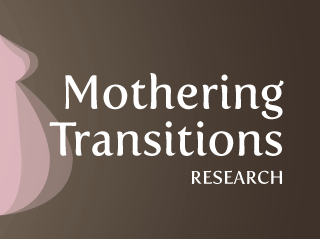Research Overview
Research Focus 1: Improving Breastfeeding Outcomes

Brief Overview of Clinical Problem
Although the value of providing infants with human milk has long been understood, a torrent of studies published in the past decade have provided undeniable evidence that breastfeeding reduces morbidity and mortality during the first year of life, not only in developing countries but in North America and Europe as well. Current World Health Organization/United Nations Children’s Fund (WHO/UNICEF) recommendations for optimal infant feeding are exclusive breastfeeding for approximately the first 6 months postpartum, after which complementary food should be introduced gradually, with the continuation of breastfeeding until 2 years or beyond. In the past decade, there has been a myriad of research into the factors affecting breastfeeding duration and exclusivity to identify risk factors for failure. Despite the significant research on the barriers to breastfeeding and the many efforts to promote and support it, almost every country in the world fails to meet the WHO recommendations for breastfeeding.
- Breastfeeding Self-Efficacy
- Other Breastfeeding Self-Efficacy Research Activities
- Clinical Utility of the Breastfeeding Self-Efficacy Scale
- Breastfeeding Studies
- Breastfeeding Peer Support Research Activities
- Doctoral Students
- Breastfeeding Publications
Research Focus 2: Detecting, Preventing, and Treating Perinatal Depression and Anxiety

Brief Overview of Clinical Problem
Childbirth represents for women a time of great vulnerability to become mentally unwell, with postpartum mood disorders representing the most frequent form of maternal morbidity following delivery. These affective disorders following childbirth range in severity from the early maternity blues to postpartum psychosis, a serious state affecting less than 1% of mothers. Within this group of disorders is postpartum depression (PPD), a condition often exhibiting the disabling symptoms of dysphoria, emotional lability, insomnia, confusion, anxiety, guilt, and suicidal ideation. Frequently exacerbating these indicators are low self-esteem, inability to cope, feelings of incompetence and loss of self, and loneliness. The inception rate is greatest in the first 12 weeks postpartum with duration frequently dependent on severity and time to onset of treatment. While residual depressive symptoms are common, 50% of mothers will remain clinically depressed at 6 months postpartum with an estimated 25% of untreated PPD continuing past the first year. PPD is a major health problem for many women from all cultures. A meta-analysis of 59 studies reported an overall prevalence of PPD to be 13%. While the cause of PPD remains unclear, with extensive research suggesting a multi-factorial etiology, one of the strongest risk factors is antenatal depression with antenatal anxiety a frequent co-morbidity. Perinatal depression and anxiety have been linked to numerous negative infant and child outcomes and thus is important to study.
- Postdoctoral Research Fellowship
- Randomized Controlled Trial Research Activities
- Other Perinatal Depression Research Activities
- Systematic Reviews
- Doctoral Students
- Perinatal Mental Health Publications
Research Focus 3: Examining the Health of Immigrant Mothers and Infants

Brief Overview of Clinical Problem
According to Citizenship and Immigration Canada, approximately 5 million people, or 18% of the Canadian population, were foreign-born, increasing to 43.7% in Toronto. Immigration patterns also indicate that 48.7% of all recent immigrants settled in Toronto, rendering it the fastest-growing multicultural city in Canada. Given that 64.2% of the recently immigrated female population is between 15 to 44 years of age, a significant number of immigrant women are in their childbearing years and will require perinatal health care.
This is a noteworthy concern considering a recent report by Health Canada suggests that immigrant and racial minority women will experience many health care issues including: (1) differences in cultural belief systems and practices that produce serious barriers in understanding, gaining access to, and interacting with the health care system; (2) a lack of access to culturally-appropriate health care services; and (3) compromised mental health due to stigmatization, socio-economic status, racism, and marginalization. These findings suggest that in our ever-growing multicultural society, there is a critical need for health professionals to provide care that is not only culturally appropriate but also promotes equal access to health care.
Research Focus 4: Developing Postpartum Interventions that Include Fathers

Brief Overview of Clinical Problem
While fathers’ roles vary widely between and within different social and cultural groups, in most countries fathers have an active role in childcare. As such, fathers can significantly influence child development. A recent meta-analysis suggests that approximately 10.4% of fathers will experience depression in the first year postpartum. Among fathers whose partners experience postpartum depression, the incidence of paternal postpartum depression rises to 25-50%. Unfortunately, much of the perinatal research has excluded fathers. Dr. Dennis’s research is developing interventions that include fathers.
